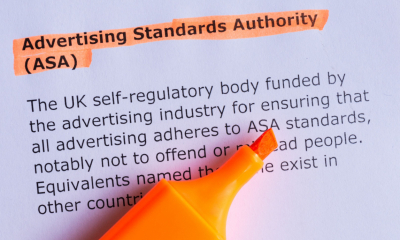FREE START-UP GUIDE AND EMAIL TIPS
 SIGN UP
SIGN UP
MORE DONUTS:
Discover the key legislation that applies to more than 160 different types of business.
Business administration including the responsibilities of directors, shareholders and the company secretary.
Also in this topic
The legal implications of mergers, takeovers , financing and buying another business.
Also in this topic
Employees and workers are entitled to a wide range of rights and protections. Understand the rules.
Also in this topic
- Recruitment and employment contracts
- Pay and pensions
- Working time: hours, leave, flexible working
- Employment policies
- Sickness and sick pay
- Maternity, paternity and adoption
- Discrimination
- Managing homeworkers, remote workers, lone workers
- Information and consultation
- Discipline and grievance
- Dismissals and redundancies
- Employment tribunals
The law on marketing and selling, consumer protection, imports and exports and selling through third parties.
Also in this topic
Create business contracts, resolve disputes, recover debts and understand court proceedings.
Also in this topic
Leases, licences, business premises ownership and the law on planning permisssion and development.
Also in this topic
Minimise the risk of accidents, injuries and incidents by managing health, safety and environmental concerns.
Also in this topic
Business data protection roles and responsibilities including GDPR, website data and cookies and use of CCTV.
Also in this topic
How to protect your intellectual property and maximise its value. Copyright, trade marks, patents and design right.
Also in this topic
Options for selling, closing or passing on your business and how to achieve a successful exit.
Also in this topic
Personal legal issues from divorce and family law, wills and inheritance to personal injury and traffic offences.
Also in this topic
Law blog
Latest blogs
Understanding legal implications for employers in driving offences
Date: 2 September 2025
By: Guest post
The AI assistant changing how legal advice is delivered
Date: 30 July 2025
By: Laura Halls, Lexis Nexis
Show blogs by topic:
How your lawyer’s AI assistant is changing the game
What business owners should know about the quiet legal tech upgrade transforming legal services here in the UK and elsewhere.
Date: 22 July 2025 By: Laura Halls, Lexis Nexis
Five ways law firms can boost customer satisfaction
The impression your law firm creates is beyond simply whether you win a case. Transparency, clear communication and pre- and post-case sessions can all lead to happy clients.
Date: 7 May 2025 By: SEO Sandwitch
Warning that UK is unattractive to overseas essential workers
British businesses and immigration lawyers are increasingly concerned that the UK’s approach to immigration is negatively impacting the recruitment of overseas essential workers.
Date: 22 April 2025 By: Immigration Advice Service
How to set expectations with new renters
Setting out clear contracts and expectations from the outset can help landlords establish a good relationship with new tenants. Here’s how.
Date: 22 April 2025 By: LawDistrict
Best practice traffic calming measures for business premises
You have a legal duty to make sure anyone on your premises – be that staff, customers or visitors – are safe. Here’s how traffic calming measures in and around your premises can help.
Date: 30 January 2025 By: Jacob Falcon
Understand how solicitors aid and support bridging loans
Discover the crucial role solicitors play in the bridging loan process from managing the legal aspects, ensuring compliance with regulations, and facilitating quick transactions.
Date: 27 November 2024 By: Stephen Clark, Finbri
Mis-sold car finance: what small business owners need to know
If you need a car for your small business, you run the risk of being mis-sold PCP car finance if you don’t know what to look out for. Here’s what to do if you think you have been mis-sold car finance.
Date: 1 October 2024 By: Jan Penalva
A comprehensive guide to conveyancing
When you buy or sell a property, you will need to complete the conveyancing process. You will need to appoint a conveyancing solicitor. Read this guide to the conveyancing process.
Date: 19 September 2024 By: QualitySolicitors
What are the cybersecurity trends shaping workforce management?
As the world of work evolves and becomes more complicated, cybersecurity is stepping in to make workforce management easier.
Date: 11 September 2024 By: Beyond Tech Media
How do I claim compensation for fingers amputated at work?
Finger amputations are one of the most common workplace accidents. If you're a victim, the injury can be life changing. Here's how to claim compensation.
Date: 28 June 2024 By: RankCastle
What compensation can I expect for medical negligence?
Sometimes, medical professionals or services fall short of what we have come to expect. Here's what you can expect if you're a victim.
Date: 29 May 2024 By: Freeman Harris Solicitors
What small businesses need to know about marketing laws
As a small business, you're not expected to know the detailed ins and outs of marketing law, but you do need to understand the basics. This blog walks you through the essentials.
Date: 22 May 2024 By: Elen Mesropyan, LinkyJuice
Soaring number of inheritance disputes in England and Wales
Increasing numbers of people are contesting their loved ones' wills. We look at the reasons why those left behind feel they have no choice when a loved one dies.
Date: 9 April 2024 By: Ocere
How to navigate compliance in a distributed workforce
Remote and geographically distant workforces are now quite commonplace. While offering a number of business benefits, it can multiply the complications of managing HR, tax and legal compliance.
Date: 20 March 2024 By: Mauve Group
Ten legal issues in software development
This article explores the top ten legal issues you need to consider before starting a new software development project.
Date: 4 January 2024 By: Pulsion.co.uk
The main benefits of due diligence
Commercial transactions can be risky with sizeable amounts of money and reputations on the line. Due diligence can significantly reduce the risks. Here are the main benefits of due diligence.
Date: 21 November 2023 By: SV Online
What UK landlords need to know about boilers
If you're a UK residential landlord, you will have key responsibilities in relation to any boilers fitted in your properties. Read on to find out more.
Date: 11 September 2023 By: Tudor Lodge Digital
What does the * mean?
If a link has a * this means it is an affiliate link. To find out more, see our FAQs.



















